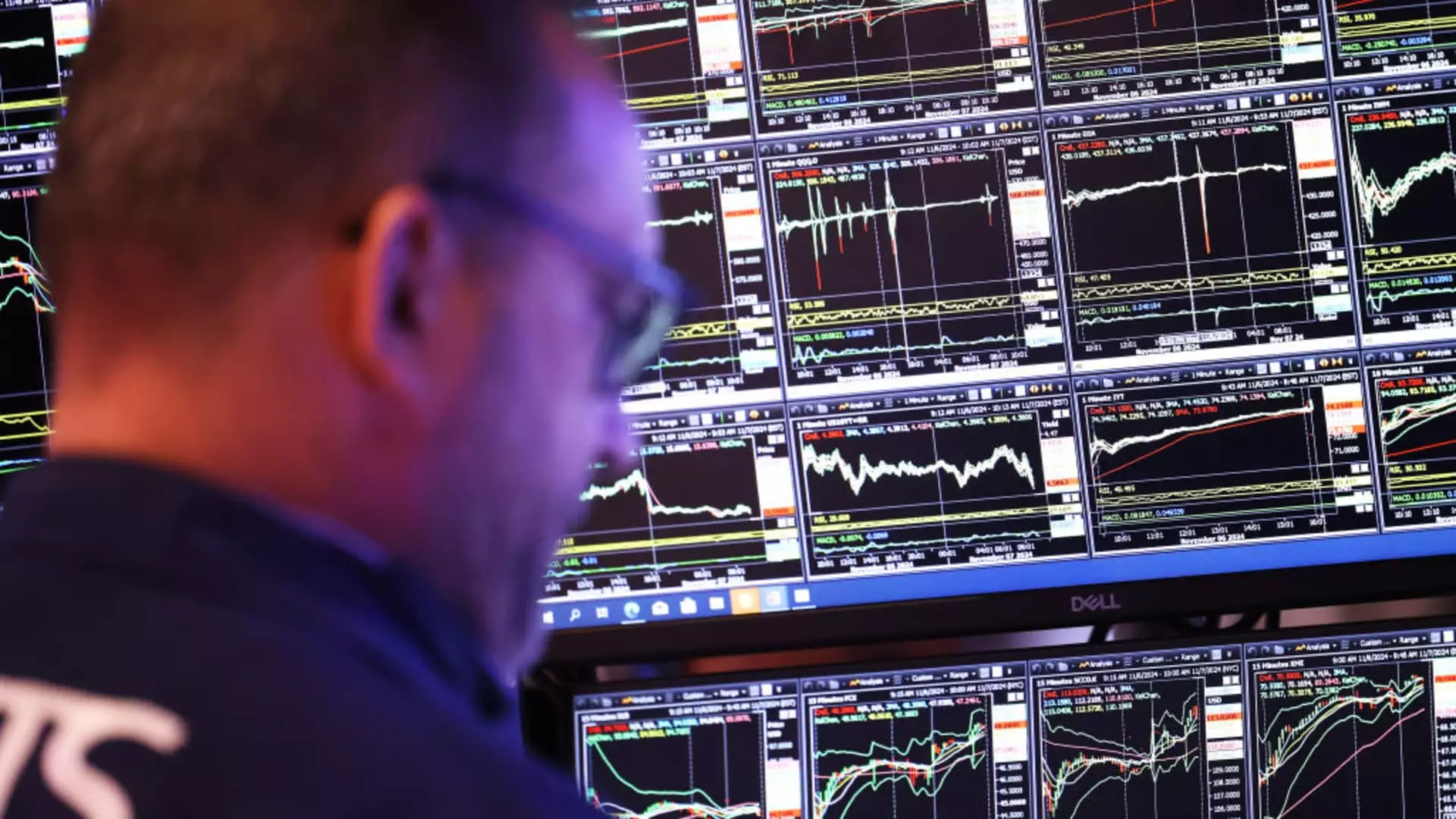European financial markets faced a downturn on Monday, reflecting the tension as traders prepared for a critical week in monetary policy. The Stoxx 600 index slipped by 0.14% as the day unfolded, with the automotive sector experiencing the heaviest losses. The French market bore the brunt of this unease, as evidenced by the CAC 40 index’s fall of 0.58%. This reaction primarily stemmed from a surprising downgrade by Moody’s, which revised France’s credit rating from Aa2 to Aa3, citing the potential weakening of public finances due to ongoing political instability. The upheaval within the French government, marked by the appointment of François Bayrou as the country’s fourth prime minister this year, has heightened investor concerns and uncertainty.
Amidst this gloom, some corporate developments provided a glimmer of hope. French media conglomerate Vivendi saw its shares soar by 33% following the listing of three of its former subsidiaries in Europe. This strategic move, approved by shareholders, aimed to unlock greater market value for each entity involved. However, the initial market response was mixed, particularly for Canal+, Vivendi’s broadcasting and film unit, which saw its stock plummet by 13% shortly after its London debut. The leadership at Canal+, under CEO Maxime Saada, expressed their commitment to expanding in English-speaking markets, which has made their London listing strategic despite the rocky start.
In parallel, shares of the Louis Hachette Group surged by 25% in Paris, while the advertising giant Havas experienced a 6% increase in Amsterdam, highlighting the diverse reactions within the media and advertising sectors, even as larger indices struggled.
The political landscape in Europe is increasingly complex, with Germany’s upcoming vote of confidence adding another layer of uncertainty. Chancellor Olaf Scholz’s call for a no-confidence vote represents a critical juncture for his beleaguered coalition, which collapsed last month. The outcome of this vote could pave the way for snap elections in February, further shaking investor confidence and market stability across the region.
While the immediate concerns are rooted in political developments, macroeconomic factors are also in focus this week. Traders’ attention is drawn towards the U.S. Federal Reserve’s meeting on December 18. Current projections suggest a 96% likelihood of a 25-basis-point interest rate cut, which could significantly influence global financial markets. The forthcoming statements from Fed Chair Jerome Powell are anticipated as critical indicators of the central bank’s future policy direction. Concurrently, the Bank of England’s meeting on December 19 is expected to yield minimal changes, with markets pricing in a slim chance for a final policy adjustment this year.
The confluence of political uncertainty and corporate restructuring is creating a precarious environment for European markets. Investors remain vigilant in their approach, grappling with the implications of both internal governmental dynamics and the broader economic landscape shaped by central bank actions.



Leave a Reply